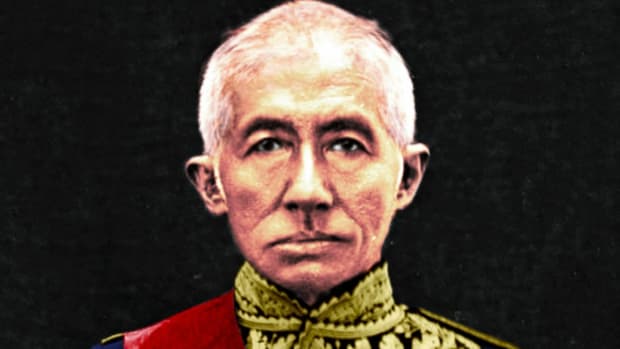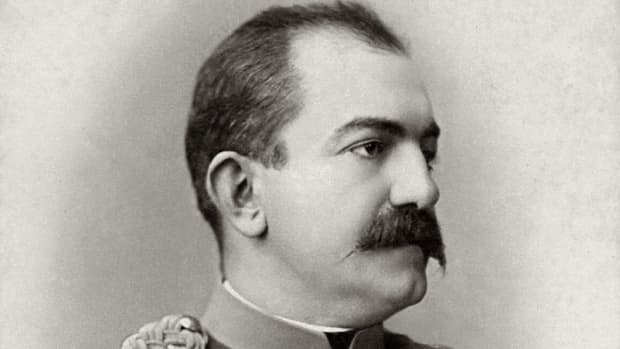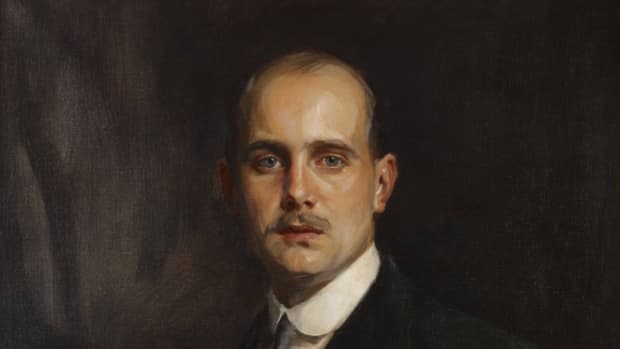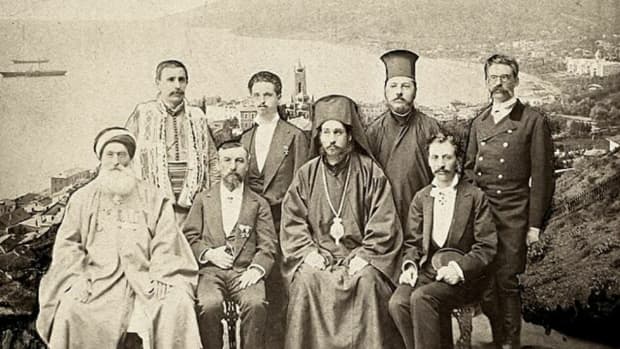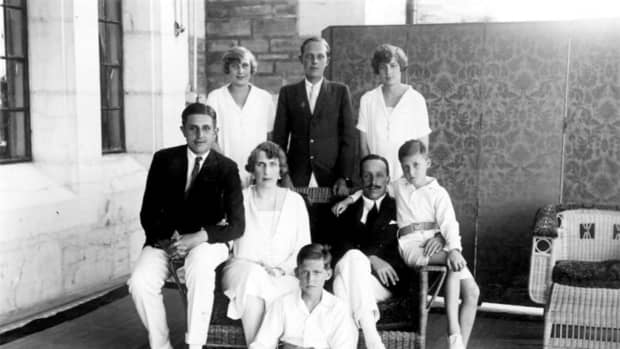King Alexander I: The Greek King Killed by a Monkey
Prince Alexander of Greece and Denmark, King of Greece
King Alexander I of Greece is the only monarch in history to die as a result of menacing monkey bites.
Born Prince Alexander in Athens on 1 August 1893 (20 July 1893 using the Julian calendar), he was the second son of King Constantine I of Greece and his wife, Sophia of Prussia.
His childhood was spent with his five siblings at the Tatoi Palace just outside Athens and at the Royal Palace in Athens. He was an extrovert youth who once accidentally set fire to a palace games room and sneakily smoked cigarettes rolled with blotting paper. He was particularly close to his sister Helen (b. 1896) but less comfortable with his sullen and aloof brother Crown Prince George (b. 1890).
He entered the Hellenic Military Academy after his schooling. There he discovered his love of cars and engines. He saw active duty during the Balkan Wars (1912-1913).

King Constantine I of Greece photographed in a German Field Marshal's uniform while he claimed neutrality during the First World War.
Wikipedia Public Domain
How Alexander I Became King of Greece
King Constantine I of Greece reigned from 18 March 1913 until he and most of the royal family were forced into exile on 11 June 1917.
At the start of World War One, Constantine's brother-in-law, Kaiser Wilhelm II of Germany, asked for Greece's support, but Constantine demurred. He maintained a neutral stance, but by 1917, his subjects were keen to fight with the Allies. Both Constantine I and the Crown Prince were seen as pro-German.
An emotional Alexander I succeeded Constantine I. His father told him to think of himself as a regent and not as a true king. Greece entered the war on the side of the Allies.
Premier Venizelos' government intended that Alexander would be a puppet king. He was an isolated figure without his family around him, and Venizelos appointed staff at the palace who were loyal to him.
The Premier and King Alexander were frequently at odds, and the Allied powers defended Alexander against the minister who wanted to dispense with his pesky royal opponent.
Aspasia Manos: Madame Manos
On 17 November 1919, a besotted King Alexander I secretly married Aspasia Manos, the daughter of Constantine I's aide-de-camp Colonel Petros Manos and his first wife, Maria. The royal family and the government disapproved of this unequal-status marriage; she was a mere commoner. The public were unenthusiastic. He had not sought the approval of the church to marry, which led to a scandal.
When news of the marriage leaked out, Aspasia was forced to flee Greece, and when she returned from Paris in mid-1920, she was not called queen. She was known as Madame Manos.
The Monkey Bite That Changed History
On 2 October 1920, King Alexander was walking his German Shepherd dog Fritz in the private gardens at Tatoi Palace.
One of the palace stewards owned Barbary Macaque monkeys. Fritz and a monkey started to fight. The king stepped in to the melee to part them. As he did so, another monkey attacked and bit him once on the chest and once on one of his legs. The panicked palace staff shooed the monkeys away and swiftly cleaned and dressed Alexander's bite wounds.
No one at the palace thought that the injuries were serious, so Alexander's wounds were not cauterised, and this was a costly error. They turned septic, and a fever and delirium took hold of him.
The Royal Physicians Fail to Act
The royal physicians considered amputating the leg to save him, but none of them were brave enough to take responsibility for the king's loss of a limb or his possible death on the operating table, so at around 4 p.m. on 25 October 1920, 27-year-old King Alexander I died.
With the exception of Alexander's grandmother Olga, no other exiled Greek royals were permitted to attend the funeral at Athens Cathedral on 29 October 1920. He was buried at the Tatoi Palace.
Although he was sworn in as a king in his own right, his headstone reads, "Alexander, son of the King of the Hellenes, Prince of Denmark. He ruled in the place of his father from 14 June 1917 to 25 October 1920."

Queen Sophia of Greece with her granddaughter Alexandra in 1921 before King Constantine I recognised her as legitimate.
Wikipedia Public Domain
Her Highness Princess Alexandra of Greece and Denmark
Aspasia was approximately four months pregnant when Alexander passed away. Their daughter Alexandra was born on 25 March 1921.
Venizelos accepted Constantine I’s restoration as king in December 1920. Constantine regarded Alexander's reign as a regency, and as Alexander had not had his or the church's permission to marry, Constantine declared that Aspasia's marriage was void and that Alexandra was illegitimate; awkward as he and Queen Sophia were her godparents.
The queen eventually persuaded her husband to be less severe, and Alexandra was legitimised in 1922. She received the title Her Highness Princess Alexandra of Greece and Denmark. He awarded Aspasia the same title later that year.
The Abolishment of the Monarchy
The Greek monarchy was once again in exile by March 1924. After further tumultuous periods with and without a monarch, the Greeks finally abolished royalty in 1973.
Aspasia died in Venice on 7 August 1972, and she was buried there. Alexandra was, by marriage, the last Queen of Yugoslavia. She survived until 30 January 1993.
Sources
- King Alexander of the Hellenes | Unofficial Royalty
- Alexander | king of Greece | Britannica
- The King who was killed by a monkey | Royal Central
This content is accurate and true to the best of the author’s knowledge and is not meant to substitute for formal and individualized advice from a qualified professional.
© 2023 Joanne Hayle







